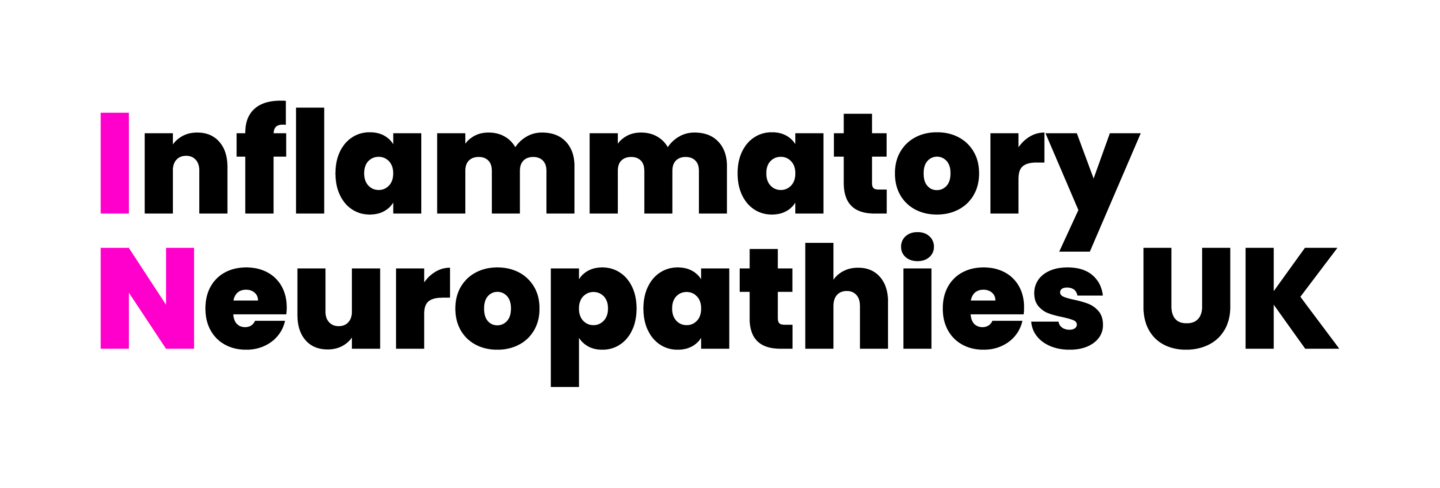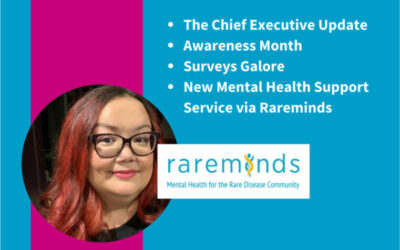Last week the government announced a number of welfare and benefit cuts designed to save £5bn. We know that these announcements created a lot of anxiety across the Inflammatory Neuropathies Community, and with the Spring Statement announced in parliament today, we wanted to bring you the latest announcements and what they could mean. Our Chief Executive Rich Collins has once again been looking at the detail, and digging into some of the support documents to bring us the latest.
I’ve been keeping my eye on our social media all week, following the reactions of people within our community to the news around benefits, and in particular Personal Independence Payments (PIP) that were announced last week. The announcement has caused shock and worry for people, especially news that the eligibility for PIP is likely to be tightened, making it harder to get. At the time of the announcement we hadn’t been given all the detail, and the impact assessment hadn’t been released. We were promised more in today’s Spring Statement, so I was waiting for more, hopeful that I could bring some better news.
Unfortunately, the news today is no better, in fact it is in many ways worse. The Chancellor Rachel Reeves today announced that because a number of new challenges, the financial outlook and predictions were worse than expected. These new challenges were the ongoing war in Ukraine, the global economy (basically Donald Trump, but this wasn’t said explicitly), and higher than expected borrowing costs. The independent Office of Budget Responsibility (OBR) have looked at the numbers and predicted that the overall UK budget will now be in deficit of £4.1bn (a negative amount) rather than the previous predicted surplus of £9.9bn (a positive amount) by 2029/30. As a result, the Chancellor announced some further changes, including some changes to welfare and benefits.
These ‘final adjustments’ to welfare were required, as the OBR worked out that the £5bn from cuts wouldn’t be achieved (more on this later), so extra cuts would be needed. While we received no more information on the PIP changes, it was announced that while Universal Credit would increase (the basic rate will rise by £14 a week by 2029-30), the health element would be frozen for existing claimants until 2029-30 and reduced to £50 for new claimants in 2026-27, before being frozen.
Also with the statement was confirmation of staff cuts at NHS England and across the Civil Service, alongside new measures designed to crack down on tax avoidance and evasion, saving a further £1bn.
The statement announced some spending as well with a new £3.25bn Transformation Fund to pay for redundancies, AI, Probation, and Foster Care. £1bn was also put aside to help people (including those on PIP) back into work. £2bn a year was announced for capital spending (although on what was not announced in the speech), and £2.2bn to be spent on defence, with the purpose of driving growth through jobs, and investment in defence manufacturing.
Growth was revised down to 1%, but the government announced that households on average would be better off by £500 a year.
While this last statement may be a great soundbite, it did feel quite hollow when based against the feedback we have been getting here at GAIN. I wanted a bit more detail on the benefit cuts, so went looking for the impact assessment we had been promised last week. Turns out, I wasn’t the only one looking for it as it hadn’t been released! In fact, the OBR had ‘slapped the wrists’ of the government for not sharing it or doing their calculations properly, which had partly led to the downscaling of financial predictions, and the need to make ‘final adjustments’.
It was only at about 4pm today that I was able to get sight of the full impact assessment, which does provide grim reading. Overall, it estimates that by 2029/30 there will be 3.2 million families (some current recipients and some future recipients of welfare benefits) who will financially lose out as a result of the changes, with an average loss of £1,720 per year. However, it also suggests that more people will be better off, with 3.8 million families (some current recipients and some future recipients) who will be on average £420 per year better off.
If we dig a bit deeper into the detail (which I have done) we can see that the most significant impacts would come from people impacted by changes to PIP entitlement rules. This is estimated to be 370,000 current recipients who would lose entitlement and 430,000 future PIP recipients who would not get PIP that they would currently be entitled to. The average loss would be £4,500 per year.
For those receiving the health element of Universal Credit, the impact would hit 2.25m current recipients, with an average loss of £500 per year, and 730,000 future recipients of UC health (average loss of £3,000 per year).
Most shockingly, the impact assessment states that as a result of the PIP changes, 250,000 more people will be considered to be in absolute in poverty in 2030.
I know there is a lot of technical information here, but basically, we expect that a lot of people (370,000) currently receiving PIP would lose that benefit which equates to £4,500 per year. That is a lot of people and a lot of money.
Now, not all of those 370,000 people will have an Inflammatory Neuropathy, and this isn’t due to come into effect until next year, so while this won’t impact everyone and won’t impact today, I completely understand that this is going to be a big concern to a lot of people.
I want to take this opportunity to say that we will be keeping an eye on this, and we will be campaigning with other organisations to make sure that government is aware of the impact this will have on real people. We will be sharing stories, concerns, and anxiety with government, and campaigning around this topic. You may have already seen that I have signed a letter to the Chancellor (organised through Scope) highlighting these issues. You can find it here (The cost of cuts to disability benefits: Our open letter to the Chancellor | Disability charity Scope UK) where you can also contact your MP.
I can assure you that we will continue to campaign about this change, highlight the impact for our community, and strive to support where we can. If you are concerned about the impact, please let us know, and please feel free to reach out if you need more information. Remember, we are here when you need us.




